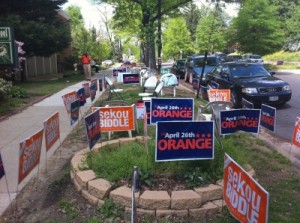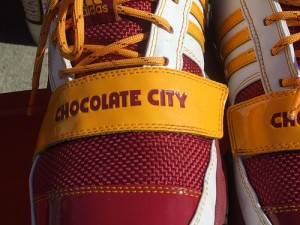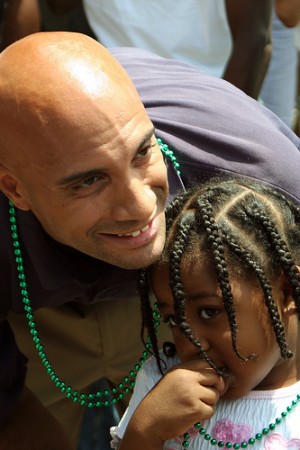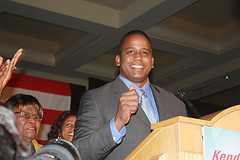Democrat and former D.C. Councilman Vincent Orange won D.C.’s special election to fill an At-Large council seat, besting opponents in a crowded field. The breakdown for this particular election seems to mirror what happened in the 2010 mayoral race: election returns showing a schism between the city’s majority white and black wards.
The unofficial results don’t give us numbers on the racial breakdown of voters, but they do show Orange won in all of the city’s majority black wards: Ward 4 (35 percent of votes) ,Ward 5 (55 percent of votes), Ward 7 (61 percent of votes), and Ward 8 (66 percent votes). Did the racial undertones of the campaign have an effect on the result? The Washington Post reports that Orange’s name-recognition helped him pull in votes:
On Tuesday, several residents said they voted for Orange because they thought he was experienced and they didn’t know enough about the other candidates.
“Rest of these guys, it’s their first time out,” said George Poynter, 87, who voted at Patterson Elementary School in Washington Highlands, in Ward 8. “We’d be right back where we started.”
Yet Orange struggled to win over voters in neighborhoods in the western part of the city, resulting in an electoral split similar to last year’s mayoral race, in which Gray unseated Adrian M. Fenty (D).
Two of those majority-white western wards — Wards 2 and 3 — were carried by Republican Patrick Mara, who also took majority-white Ward 6, while Democrat Bryan Weaver took his home Ward 1.











